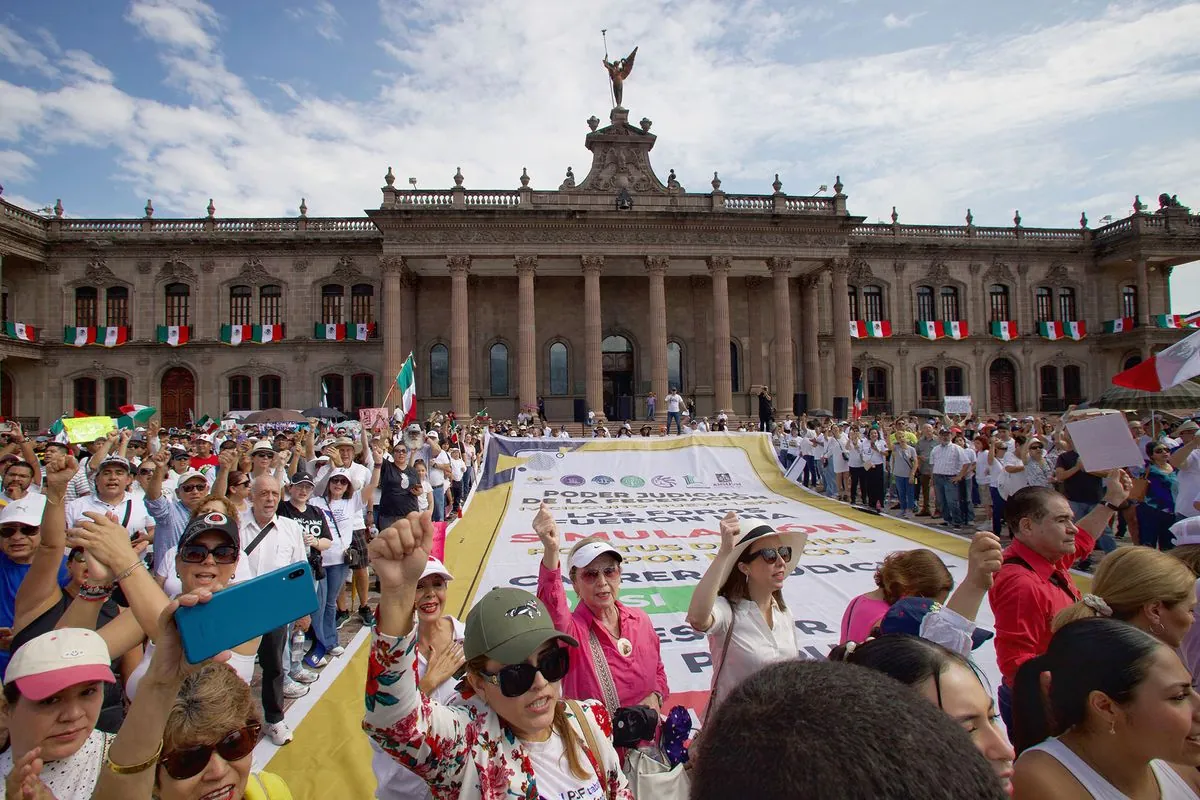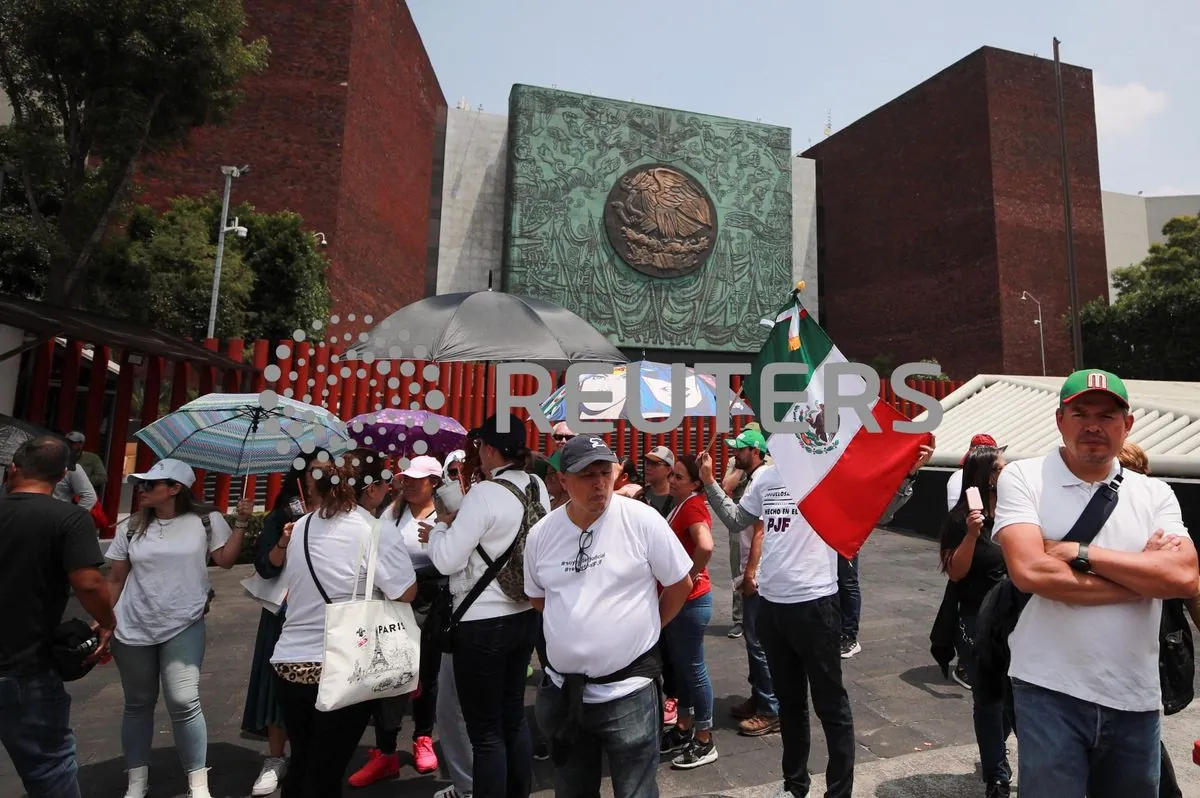Mexico's Judicial Overhaul Sparks Debate as Ukraine Reshuffles Cabinet
Mexico's Congress approves controversial judicial reform, while Ukraine's government undergoes major changes. Meanwhile, China hosts African leaders in Beijing to strengthen ties and influence on the continent.

Mexico's legislative body has approved a significant alteration to the country's judicial system, prompting discussions about its potential consequences. Concurrently, Ukraine's administration is experiencing substantial changes, and China is hosting African leaders to reinforce its influence on the continent.
Mexico's lower house of Congress has endorsed legislation that would transform the selection process for judges. The proposal, which passed after an extended voting session, mandates that approximately 7,000 judges be chosen through public elections. This marks a significant departure from the current system, where Supreme Court justices are nominated by the president and confirmed by senators.
The reform package also includes modifications to the Supreme Court's structure, such as reducing the number of justices and altering term limits and eligibility criteria. President Andrés Manuel López Obrador supports these changes, arguing they will enhance judicial accountability. However, critics express concerns about potential vulnerabilities to external influences and the concentration of power.
"The intention of this reform is to eliminate once and for all the checks and balances that have put a limit to the concentration of power."

In Ukraine, a major reorganization of the government is underway. Several key ministers, including Foreign Minister Dmytro Kuleba, have submitted their resignations. This shake-up comes as President Volodymyr Zelensky seeks to inject "new energy" into the administration amidst the ongoing conflict with Russia, which began over two years ago.
The cabinet reshuffle coincides with recent Russian attacks on Ukrainian cities, including a drone and missile strike on Lviv that resulted in casualties and damage to infrastructure. These developments underscore the continuing challenges faced by Ukraine's leadership in managing both internal governance and external threats.
Meanwhile, Beijing is hosting the Forum on China-Africa Cooperation summit, bringing together leaders from across the African continent. President Xi Jinping is using this platform to promote China's Belt and Road Initiative and discuss investments in technology, energy, and critical minerals.
China, which became Africa's largest trading partner in 2009, aims to further strengthen its economic and diplomatic ties with African nations. The summit highlights China's growing influence on the continent, with bilateral trade expected to reach significant levels in the coming years.
As these events unfold, they reflect the complex interplay of domestic politics, international relations, and economic interests shaping the global landscape. The outcomes of Mexico's judicial reforms, Ukraine's governmental changes, and China's engagement with Africa will likely have far-reaching implications for their respective regions and beyond.


































